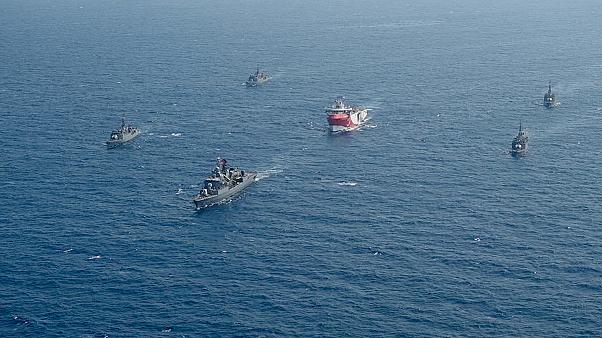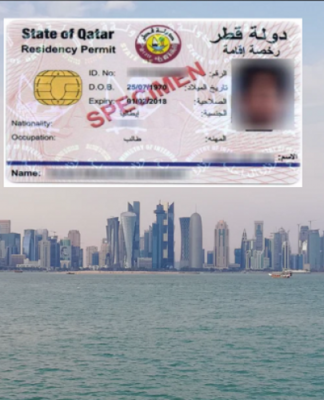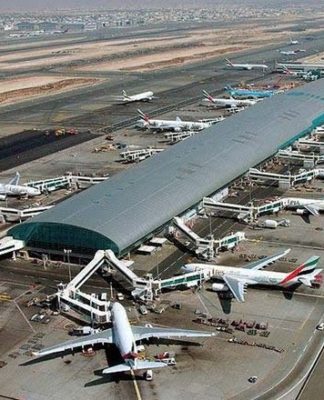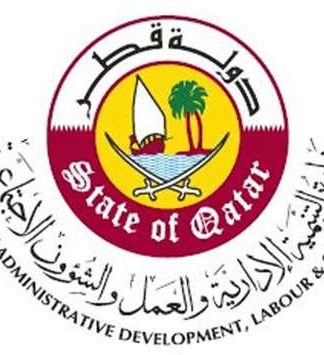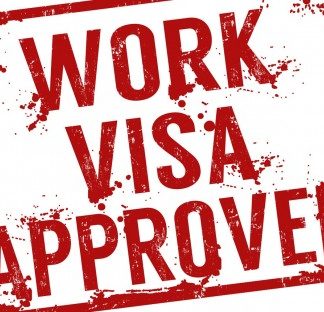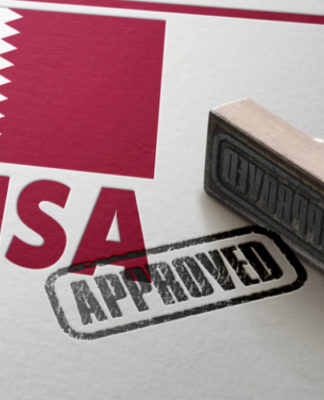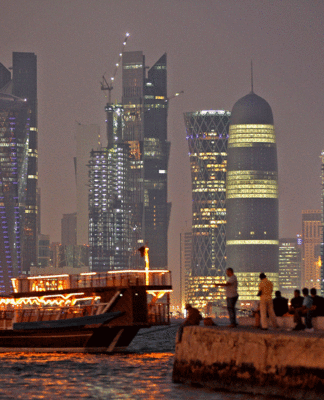Troubled waters: Greek-Turkish escalations in the Mediterranean
Issued on:

Greece and Turkey have increased their military manoeuvres in the Mediterranean Sea in recent days. At the heart of the dispute between the historic rivals lies the search for hydrocarbons.
Tensions have been mounting in the Mediterranean Sea in recent days with announcements of military exercises in the area emerging from a slew of countries. It has not reached the stage of open conflict fortunately, but the escalations between Greece and Turkey have been alarming.
On the one hand, Turkey on Thursday announced that it would conduct military exercises, including firing exercises, on September 1 and 2 off the Turkish town of Iskenderun, north east of Cyprus.
On the other hand, the Greek defence ministry on Wednesday revealed that Greece, Cyprus, France and Italy have agreed to deploy a joint presence in the Eastern Mediterranean within the framework of the Quadripartite Cooperation Initiative (QUAD). This exercise included the use of three French Rafale fighter jets, a frigate and an attack helicopter.

Between the Turkish fleet and the European ships currently at sea, the Mediterranean is bristling with a military presence, the likes of which the region has not seen for many years. US ships are also present in the area under NATO missions, but Washington so far seems unwilling to be dragged in by either side. The destroyer USS Winston S. Churchill carried out an exercise with the Greek navy on Monday, before carrying out another with the Turkish navy on Wednesday.
“There is an intensity of military movements in the Mediterranean that is quite rare,” Hugo Decis of the London-based International Institute for Strategy Studies (IISS) told FRANCE 24. “We are facing military powers that are used to this type of deployment, but the context is tense and we are never safe from an incident that could degenerate.”
Greece and Turkey came close to war in 1996 over two uninhabited islets in the Aegean Sea and have been fighting for decades over the extent of their respective territorial waters.
Nearly 5,765 billion cubic metres of gas in the Eastern Mediterranean
At stake is access to gas resources in the Eastern Mediterranean Sea. Determined not to miss out, Turkey has been conducting research for several months in a disputed area of the Levantine Basin. On August 10, the deployment of the Oruç Reis, a Turkish seismic research vessel, and its military escort to the south of the far-flung Greek island of Kastellorizo was viewed as a provocation by Athens, triggering alarm bells in the Greek capital.

The Levantine Basin, which stretches from Crete and the island of Rhodes in the west to the Asian coast in the east, contains 5,765 billion cubic metres (bcm) of gas, according to a 2010 estimate by the US Geological Survey. However, the exclusive economic zones (EEZs), as defined by international law, “imprison Turkey inside its shores”, said Turkish President Recep Tayyip Erdogan, depriving it of access to any possible deposits between Crete and Cyprus.
In November 2019, Turkey signed a maritime delimitation agreement with the UN-recognised Libyan government in Tripoli aiming at changing the boundaries of the exclusive economic zones. This agreement between Turkey and Libya is an attempt by Ankara to extend the surface area of its territorial waters, and also to thwart the EastMed gas pipeline project, the fruit of an agreement between Cyprus, Greece and Israel.
To counter the Turkish manoeuvre, Greece in turn signed a similar agreement with Egypt at the beginning of August. The agreement allows the two countries “to move forward, each taking maximum advantage of the resources available in the EEZ, including oil and gas reserves”, said Egypt’s foreign minister.
Daily newsletterReceive essential international news every morning
Like Beijing in the South China Sea, in conflict with several countries including Vietnam, the Philippines and Malaysia over the exploitation and control of several islands, Turkey is attempting a “fait accompli” policy. Except that the context is different in the Mediterranean, with neighbouring European states that have the means to respond, as shown by the current escalation of tensions.
That does not seem to bother Erdogan. For the Turkish leader, the issue at stake is not only strategic, it’s also political. “For several years now, the Turkish government has chosen to develop a rhetoric of ascending power, a country capable of dictating its conditions to its neighbours,” explained Decis. It’s therefore a question of Turkey’s staging capacity to impose itself against its rivals.
As a sign of its refusal to give up the arm-wrestling with Greece and its supporters, Turkey on Thursday accused France of reinforcing tensions by deploying warplanes in Cyprus in a display of support for Athens. “The time of the kings is over. You have no chance of getting anything from us by acting like this,” admonished the Turkish defence minister.
For its part, Germany, which holds the EU rotating presidency, has been trying to mediate for several days and is calling on Athens and Ankara to engage in dialogue.














